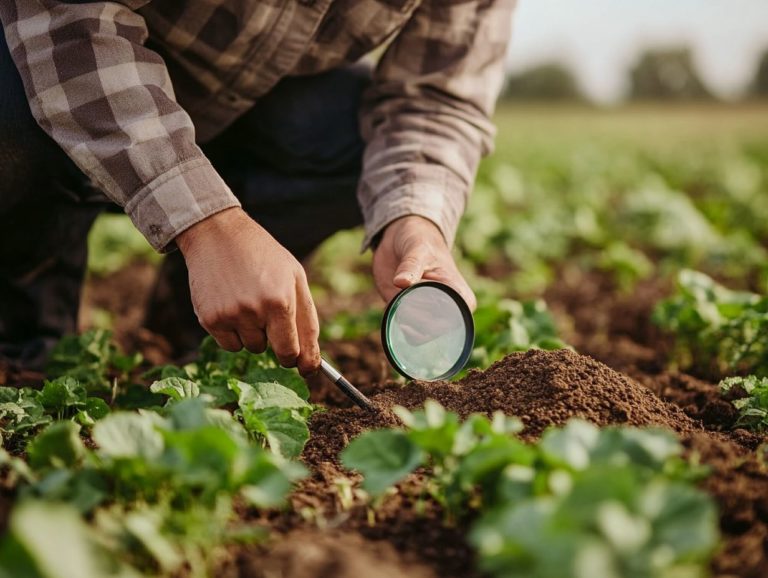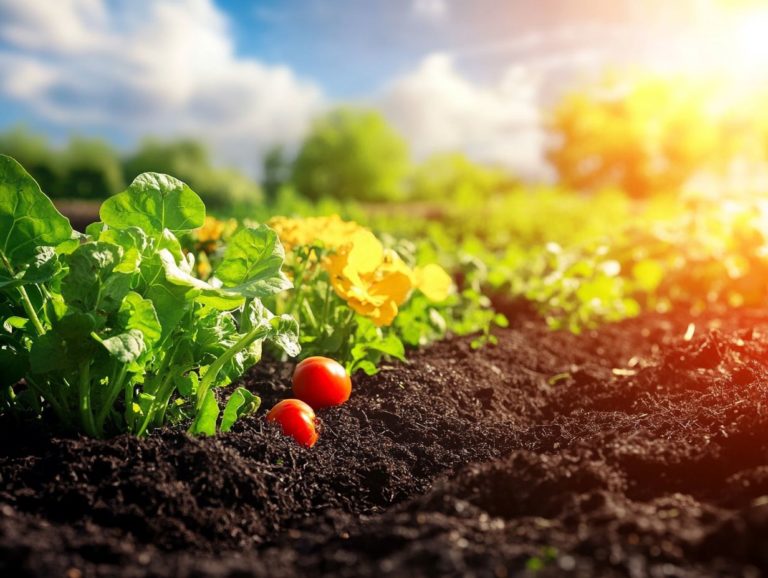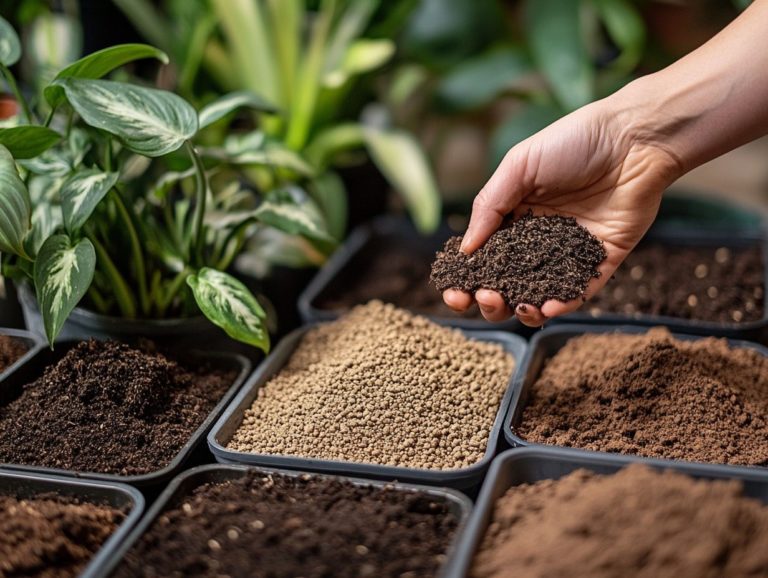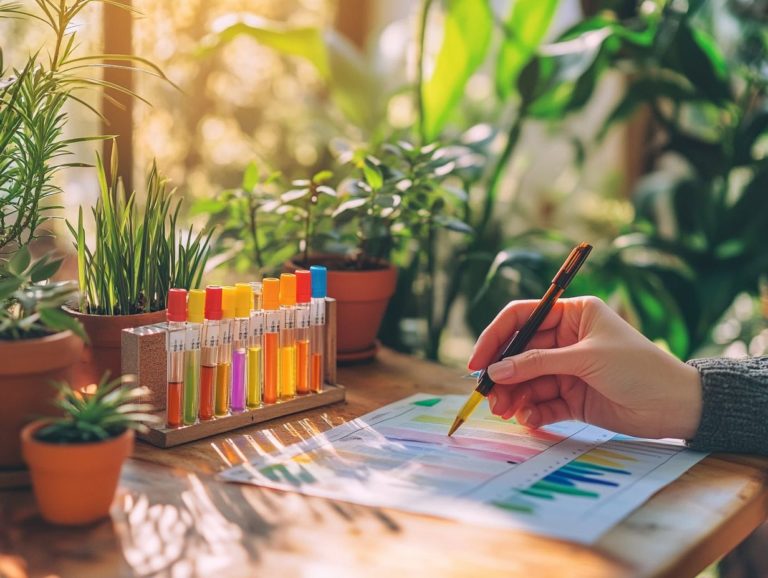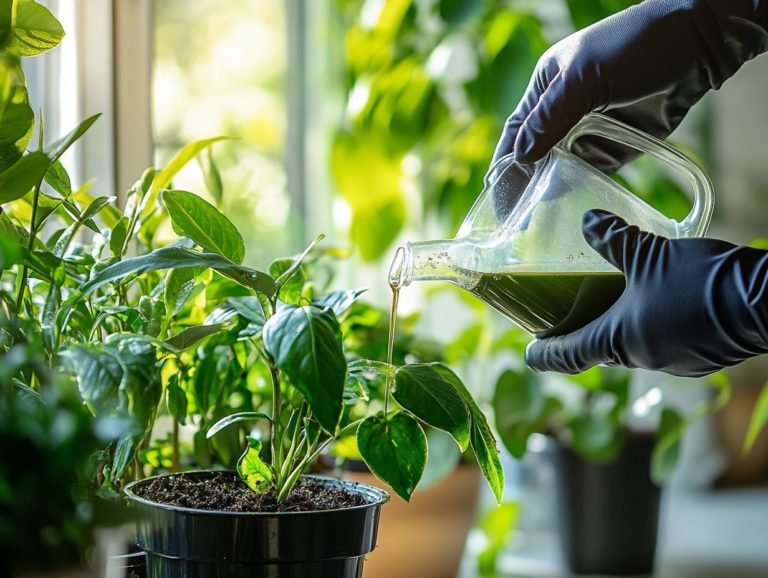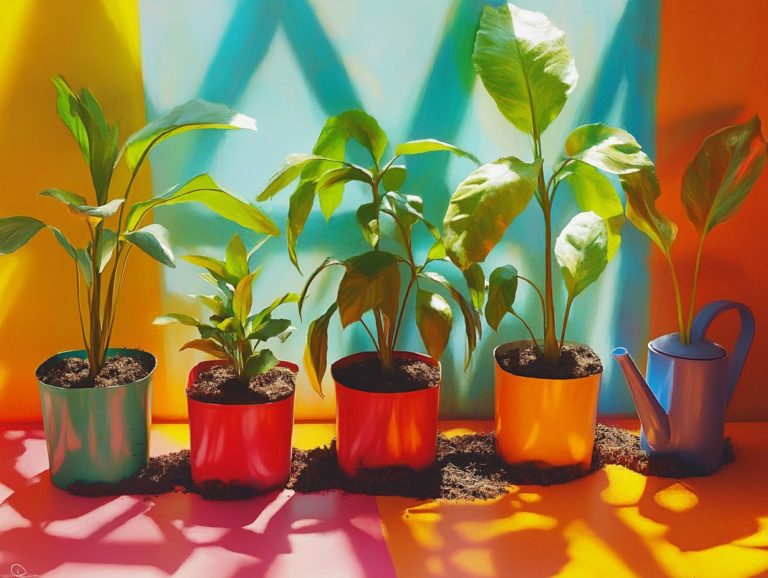How to Care for Soil in Indoor Herb Gardens
Soil is the unsung hero of your herb garden, playing a vital role in the health and productivity of your plants. Selecting the right soil and preparing it thoughtfully are essential steps for any aspiring herb gardener.
This guide will explore the importance of soil, key factors to consider when making your selection, and how to troubleshoot common soil issues. Whether you’re a seasoned gardener or just starting out, getting the hang of soil care will undoubtedly elevate your herb-growing experience.
Contents
- Key Takeaways:
- Why is Soil Quality So Important for Your Herbs?
- Choosing the Right Soil for Your Herb Garden
- Preparing and Maintaining Soil for Herb Growth
- Common Soil Issues in Indoor Herb Gardens
- Troubleshooting Soil Problems
- Effective Solutions for Common Issues
- Frequently Asked Questions
- What type of soil is best for indoor herb gardens and herb care?
- How often should I water the soil in my indoor herb garden?
- Can I use regular garden soil for my indoor herb garden?
- Should I fertilize the soil in my indoor herb garden?
- How can I tell if the soil in my indoor herb garden needs to be replaced?
- What can I do with old soil from my indoor herb garden?
Key Takeaways:
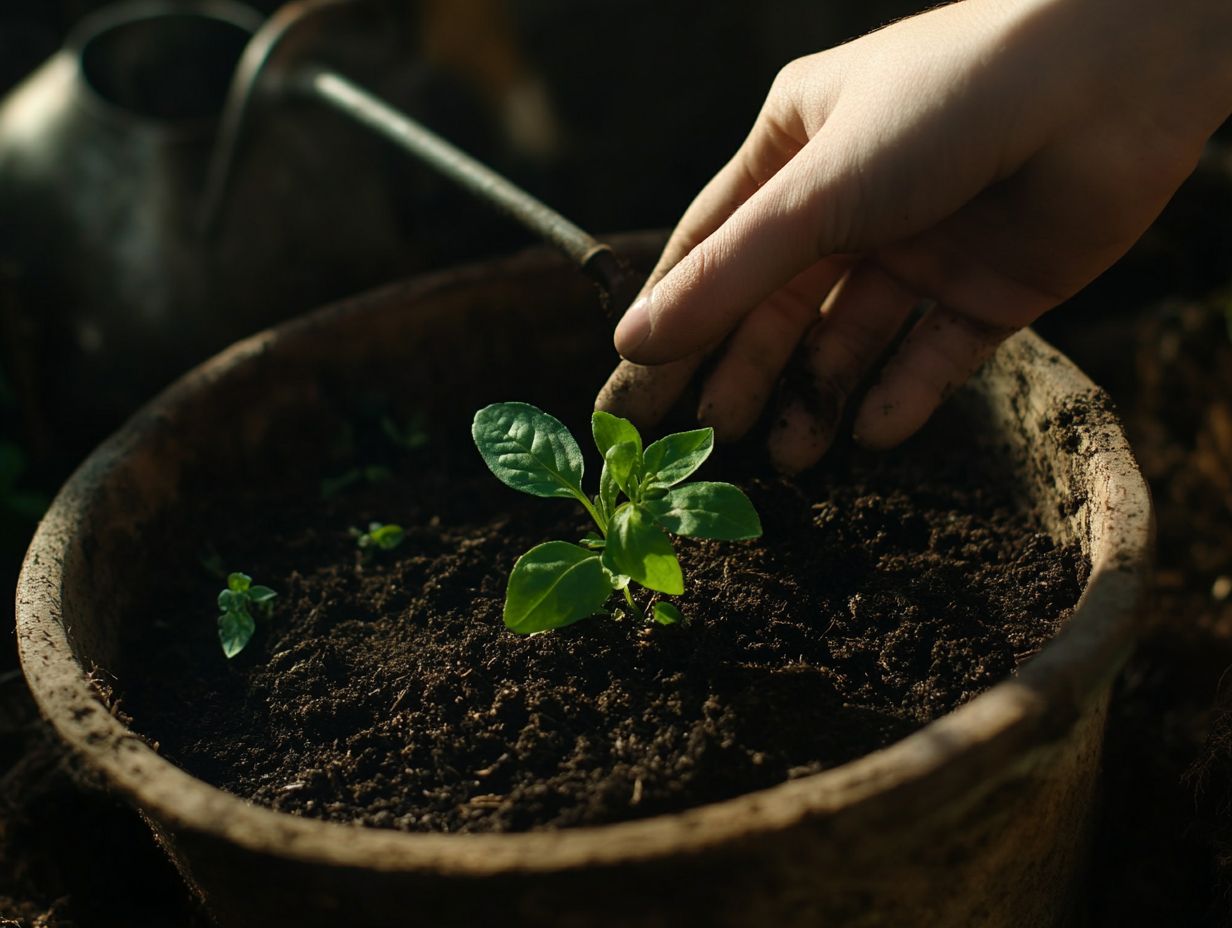
- Soil quality is crucial for the success of herb gardens as it provides essential nutrients and supports plant growth.
- When choosing soil, consider factors like drainage, pH level (the measure of acidity or alkalinity), and nutrient content to ensure optimal plant growth.
- To maintain healthy soil, regularly check for issues like compaction, pests, and nutrient deficiencies, and take steps to address them promptly.
Why is Soil Quality So Important for Your Herbs?
The soil in your herb garden is pivotal for the health and productivity of your herbs. It serves as the foundation that supplies essential nutrients, facilitates drainage, and supports growth. Selecting the right soil can dramatically enhance your ability to cultivate herbs such as basil, chives, rosemary, and thyme, all of which flourish in carefully maintained conditions.
By grasping the significance of soil, you can nurture your herb garden with confidence, ultimately yielding vibrant, fresh herbs to elevate your culinary creations.
Why Soil Quality Matters
Soil quality is essential when nurturing indoor herbs, as it profoundly affects their growth rate, health, and overall yield. A well-structured soil retains vital nutrients and ensures proper drainage, which is crucial in preventing root rot.
When the soil maintains the ideal balance of moisture while draining excess water, it naturally reduces the frequency of watering required, simplifying herb maintenance. High-quality soil also contributes to healthier root systems, enhancing the plants capacity to absorb nutrients effectively.
Therefore, achieving optimal soil conditions is fundamental for anyone aspiring to cultivate lush, vibrant herbs indoors.
Choosing the Right Soil for Your Herb Garden
Selecting the right soil is crucial in crafting an ideal growing environment. It influences everything from moisture retention to nutrient availability. A blend of potting soil enriched with organic material offers a superb foundation, ensuring proper drainage and the perfect balance of temperature and humidity for your herbs.
This thoughtful choice nurtures the health and vitality of your plants, setting the stage for a thriving garden within your home.
Key Factors to Consider
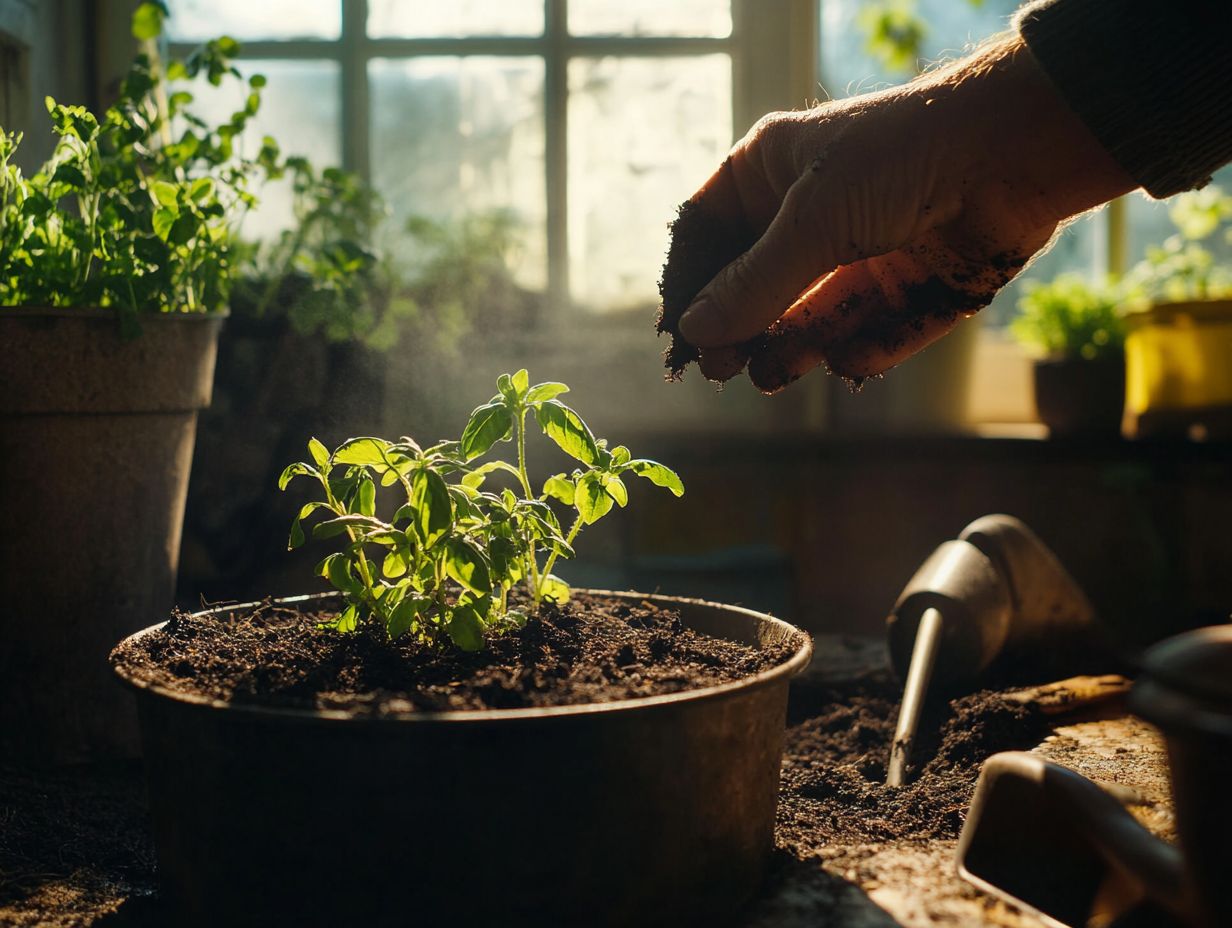
When selecting soil for your herb garden, it’s essential to consider several key factors to ensure your herbs grow healthily and robustly.
First and foremost, consider drainage capabilities. You want to prevent water from pooling, as this could damage the roots and stunt growth. Proper air circulation is equally vital; it allows your herbs to breathe and thrive. Additionally, understanding how to maintain soil moisture for indoor plants can further enhance their growth.
Don’t overlook light requirements; different herbs have varying preferences for sunlight, which can significantly impact their health. Understanding the specific nutrient needs of each herb is crucial, as it guides you in choosing a nutrient-rich soil that fosters healthy growth.
By balancing these elements thoughtfully, you ll create a thriving environment where your herbs can flourish indoors.
Start your herb garden today and enjoy fresh herbs all year round!
Preparing and Maintaining Soil for Herb Growth
Preparing and maintaining soil is vital for your indoor herbs. This creates a rewarding gardening experience filled with homegrown delights. Start by selecting a rich potting soil that s infused with organic materials. Establish a thoughtful watering schedule, complemented by effective indoor gardening techniques, to keep the soil in peak condition.
Consistent care not only boosts the health of your herbs but also elevates their flavor and nutrient content, transforming your culinary creations into something extraordinary.
Steps for Preparing and Maintaining Soil
Preparing and maintaining soil is essential for creating a vibrant environment for your indoor herbs.
- Start by choosing a high-quality potting mix that boasts excellent drainage (a condition where roots decay due to excess water), as this is crucial for preventing root rot.
- Blend this mix with organic materials like compost or well-rotted manure to enrich the soil with the nutrients your herbs need to flourish.
- Create a mix that balances air flow and moisture.
Keep a close eye on the soil’s pH and moisture levels, making adjustments as needed. Don’t forget to consider occasional top-dressing with compost to ensure that your herbs receive ongoing nourishment. For proper care, learn how to water your indoor garden correctly.
Follow these steps to grow vibrant plants that will transform your indoor space.
Common Soil Issues in Indoor Herb Gardens
Common soil issues in your indoor herb garden can profoundly affect the vitality and productivity of your herbal plants, making it crucial to identify and address these challenges without delay.
- Overwatering, which can lead to root rot.
- Pest infestations that undermine plant health.
- Drainage issues that may suffocate your herbs.
By staying alert and incorporating effective indoor gardening strategies, including lighting tips for indoor herb gardens, you can cultivate a flourishing herb garden within the comfort of your home.
Identifying and Addressing Problems
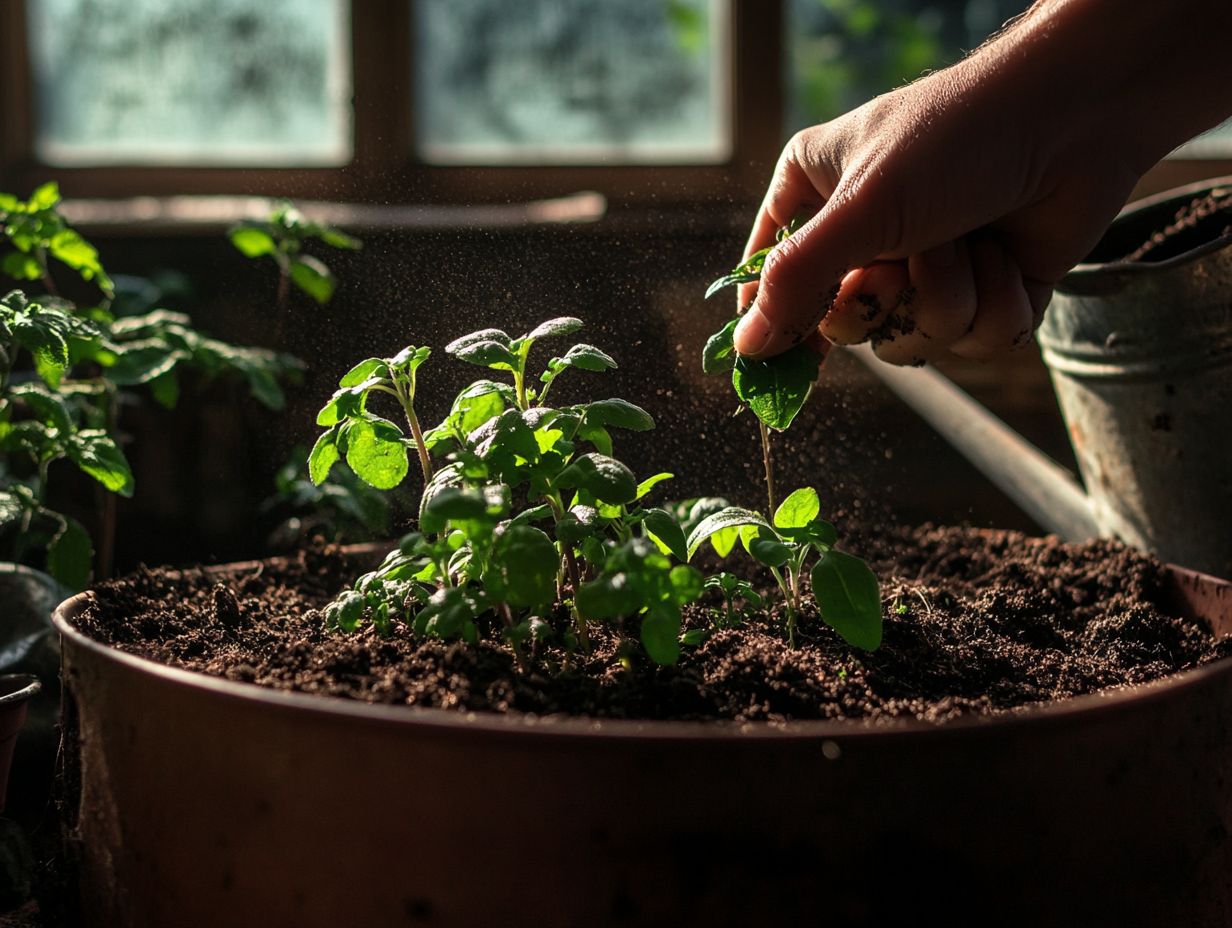
Identifying and addressing soil problems in your indoor herb garden is essential for nurturing healthy plants.
By closely observing your plants, like noting any yellowing leaves or stunted growth, you can uncover valuable insights into potential soil deficiencies or imbalances. Regularly assessing the soil conditions checking moisture levels and texture can reveal issues such as compaction or poor drainage that may impede root development.
Once you identify these problems, solutions like incorporating organic matter or adjusting your watering routines can greatly enhance soil health. Creating a pest-proof garden helps protect your herbs from insects and improves soil health, leading to a more fruitful gardening experience.
Troubleshooting Soil Problems
Act quickly to tackle soil issues in your herb garden. Troubleshooting soil problems demands a discerning understanding of the potential issues at hand, along with targeted solutions tailored to your specific needs. Whether you re contending with compacted soil or nutrient deficiencies, adopting the right approach can rejuvenate your herbs and restore them to optimal health.
By implementing thoughtful indoor gardening tips and making essential adjustments like fine-tuning pH levels you can create an environment where your herbs not only thrive but also yield vibrant, fresh flavors.
Effective Solutions for Common Issues
To supercharge your plants’ health, tackle common soil issues in your indoor herb garden with these effective solutions.
Replenish nutrients with natural plant food made from living matter or compost. This not only boosts the soil’s fertility but also enhances its overall structure.
Ensure proper drainage by incorporating amendments like perlite or vermiculite, which aerate the soil and prevent waterlogging.
Pest management is crucial for safeguarding your cherished herbs. Introducing beneficial insects or using natural pesticides can help keep those pesky invaders at bay while preserving a healthy ecosystem.
By implementing these strategies, you can cultivate a thriving indoor herb garden that flourishes beautifully.
Frequently Asked Questions
What type of soil is best for indoor herb gardens and herb care?
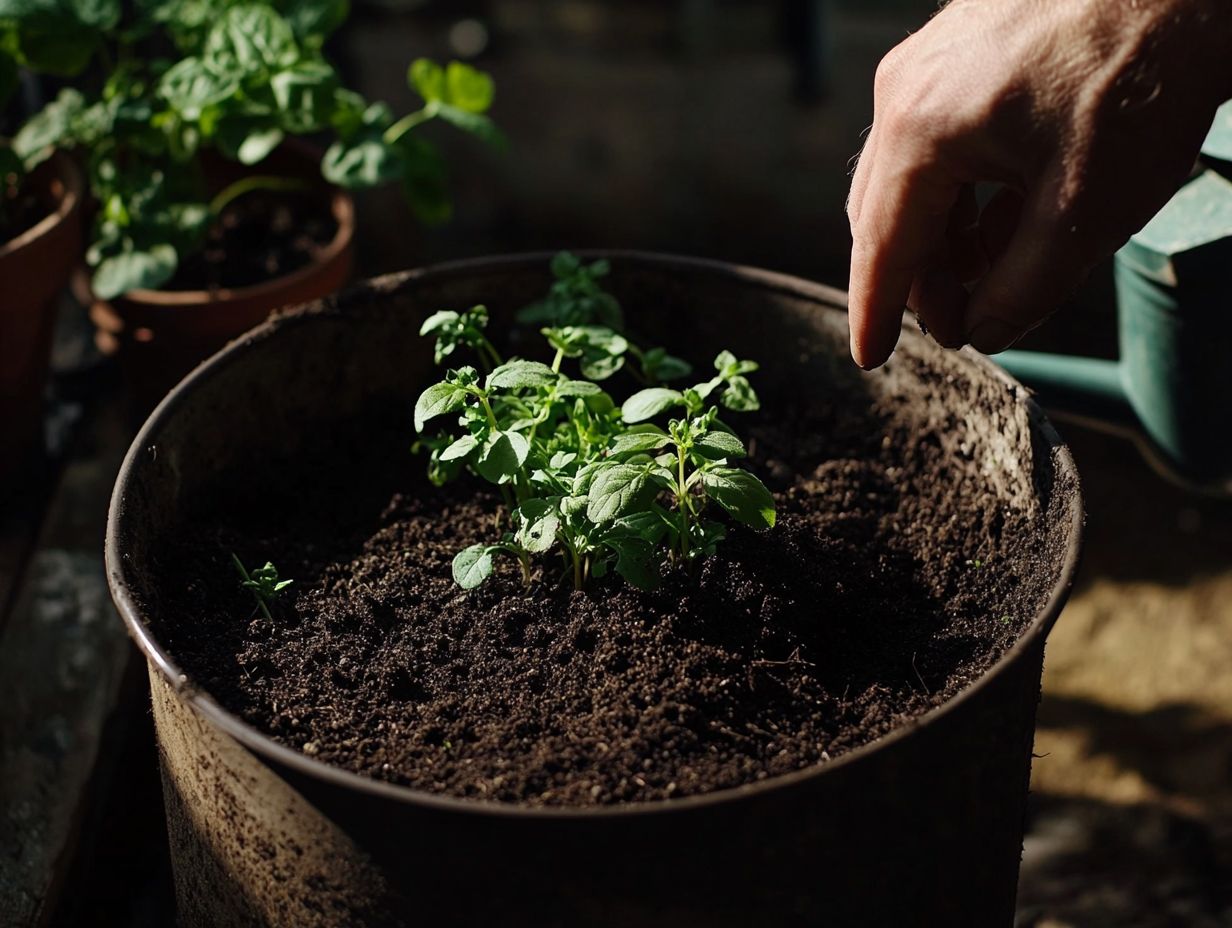
The best type of soil for indoor herb gardens is a light, well-draining potting mix. Look for mixes specifically formulated for herbs or vegetables, or create a mix using equal parts of compost, peat moss, and perlite.
How often should I water the soil in my indoor herb garden?
The frequency of watering depends on factors such as the type of herbs you’re growing, the size of the pot, and the humidity in your home. Generally, wait until the top inch of soil is dry before watering again.
Can I use regular garden soil for my indoor herb garden?
No, using regular garden soil is not recommended for indoor herb gardens. Garden soil is too heavy and can become compacted, leading to drainage issues and suffocating your herbs’ roots. Stick to a lightweight potting mix instead.
Should I fertilize the soil in my indoor herb garden?
Yes, fertilizing your indoor herb garden is essential for healthy plant growth. Choose a fertilizer specifically formulated for herbs or vegetables and follow the instructions on the packaging for application frequency.
How can I tell if the soil in my indoor herb garden needs to be replaced?
If your herbs are not thriving or seem to struggle, it may be a sign that the soil needs replacing. Another indicator is compacted soil that leads to water collecting on the surface instead of being absorbed.
What can I do with old soil from my indoor herb garden?
Old soil from your indoor herb garden can be reused in outdoor gardens or flower beds. You can also mix it with new potting mix for your next batch of herbs. If it’s heavily compacted or has a lot of debris, it’s best to discard it and start fresh.
Start your herb garden journey now!

